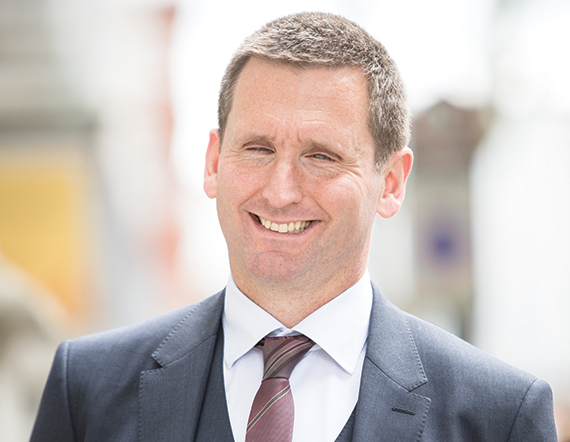 Barriers to the full participation of disabled people in society still persist. It is unacceptable that provisions on the statute book for 20 years have not yet been brought into force.
Barriers to the full participation of disabled people in society still persist. It is unacceptable that provisions on the statute book for 20 years have not yet been brought into force.
Many disabled people are still locked out of full participation in society because of barriers remaining in the provision of housing, transport, leisure facilities, education and workplaces. Just as important as removing these barriers to employment and fundamental services is ensuring that disabled people can fully participate in civic, political and public life on an equal basis with others.
Changing attitudes
In my role as director of Paralympic integration for London 2012, I was determined that the 2012 Paralympic Games would not only be an inspiration for generations to come, but would also leave behind an international and national legacy that supported the aspirations of disabled people to achieve in education, employment and social life.
The London 2012 Paralympics agreed a deal with Channel 4 that resulted in unprecedented coverage, an incredible marketing campaign, a new programme that outlasted the games – the Last Leg – and this year’s Year of Disability. All these must be recognised as hugely significant in changing attitudes.
Equal opportunities for all
Although attitudes may be changing, one area that still faces significant challenges is ensuring those with disabilities have fair access to jobs: only half of disabled people in Britain are in work compared with four-fifths of non-disabled people.
Employers have an important role to play. Firms need to do more to accommodate and support people with disabilities and should see this as an effective way of unlocking talent.
A recent RICS survey of senior British SME decision-makers revealed that nearly half (45%) of SME senior decision makers said disabled people would find it “difficult” in their workplace. A lack of appropriate access was the primary barrier to increasing diversity (31%), according to respondents, followed by a shortage of diverse candidates (19%).
As diversity adviser to the civil service I have worked with that entity on the disability agenda, and have helped draw up priorities such as improving the talent pipeline of disabled employees, improving support on managing mental health within the organisation, and encouraging and rewarding inclusive leadership. What an amazing opportunity the civil service has been to demonstrate the value of championing disabled employees, as well as showing others how it can be done.
But we all have our part to play – government, individuals and big business. Talent is everywhere, opportunity is not.
Chris Holmes will host the 2016 RICS Matrics Young Surveyor of the Year Awards on 18 November at the Hilton Bankside Hotel, SE1, www.rics.org/uk/footer/rics-matrics-young-surveyor-of-the-year
Lucile Kamar, Equalities Manager, RICS
“Having a diverse workforce is vital for future-proofing the property and construction industries. One way to ensure this happens is to make the workplace as accessible as possible for all and this is one of the reasons why we launched our inclusive employer quality mark last year.
“More than 100 firms of all sizes from across the UK have become signatories to the IEQM, which encourages companies to recognise their role in engaging and attracting new people from under-represented groups to the industry. Firms that pledge their support for the initiative are committing to adopting and continually improving in a number of areas including recruitment, staff engagement and leadership and vision.
“There is still much work to do in terms of breaking down barriers, altering perceptions, and addressing the lack of support in some workplaces for those with disabilities, but our diversity and inclusion work in the industry is certainly being well received and having a positive impact.”
For further details on the RICS’ IEQM and how to become a signatory, visit www.rics.org/diversity











